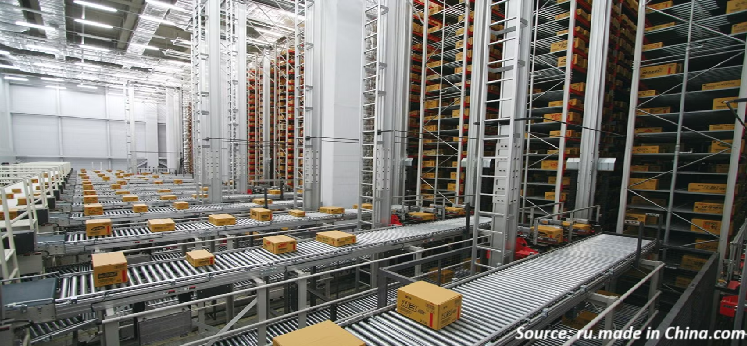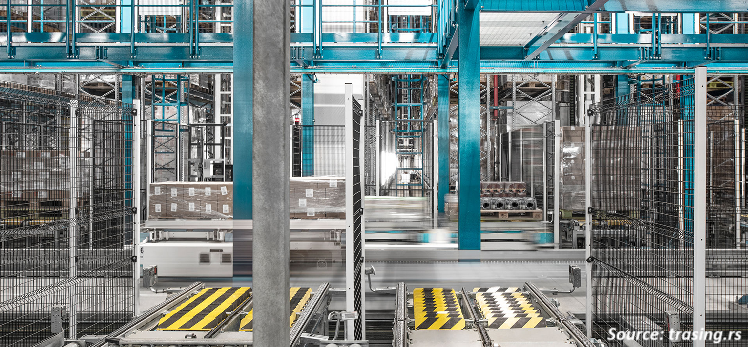
Canada Heat Exchangers Market by Type (Shell & Tube, Plate & Frame, Air Cooled, and Others), by Material (Metals, Alloys, and Brazing-CLAD), and by End User (Chemical, Energy & Power, Heating, Ventilation, Air Conditioning, and Refrigeration (HVACR), Food & Beverage, Pulp & Paper, and Others)– Opportunity Analysis and Industry Forecast, 2024–2030
Industry: Construction & Manufacturing | Publish Date: 03-Dec-2024 | No of Pages: 118 | No. of Tables: 86 | No. of Figures: 51 | Format: PDF | Report Code : CM1529
US Tariff Impact on Canada Heat Exchangers Market
Trump Tariffs Are Reshaping Global Business
Market Overview
The Canada Heat Exchangers Market size was valued at USD 603.6 million in 2023, and is predicted to reach USD 845.2 million by 2030, with a CAGR of 4.3% from 2024 to 2030.
Heat exchangers are devices engineered to transfer heat between fluids without direct contact, extensively employed across industrial, commercial, and residential sectors, including HVAC systems and refrigeration units, to efficiently heat or cool fluids or air. Operating by enabling heat passage through barriers such as solid walls or arrays of plates or tubes, they perform diverse functions such as heating water in boilers or cooling air in air conditioning systems. Available in various designs tailored to specific needs, ranging from simple radiator coils to complex systems found in chemical processing plants and power generation facilities, they fulfill indispensable roles across multiple industries and applications.
These roles include regulating air temperature in buildings, facilitating steam production in power plants, controlling temperatures during chemical reactions, and aiding in food processing, among other functions. Additionally, they serve as critical components in automotive cooling systems and find widespread utilization in aerospace, marine, and wastewater treatment industries, playing pivotal roles in efficient thermal management and energy transfer.
Growing Industrialization and Urbanization in Canada Drive Market Growth
Growing industrialization and urbanization in Canada are significant drivers of market growth in the heat exchangers industry. As urban areas expand and industrial activities increase, there is a growing demand for heat exchangers across various sectors, including manufacturing, construction, and residential developments.
Industries such as HVAC, chemical processing, power generation, and food processing heavily rely on heat exchangers for efficient thermal management and energy transfer. The need for these devices is further amplified by the emphasis on energy efficiency and sustainable practices, driving the adoption of heat exchangers in Canada's rapidly evolving industrial landscape.
Stringent Government Regulations Regarding Energy Efficiency Boost Canada’s Market Expansion
Stringent government regulations regarding energy efficiency play a crucial role in boosting Canada's market expansion for heat exchangers. With a strong focus on reducing carbon emissions and promoting sustainable practices, Canadian authorities implement strict standards and regulations to enhance energy efficiency across various industries.
These regulations encourage businesses to invest in energy-efficient solutions including heat exchangers to minimize energy consumption and reduce environmental impact. As a result, the demand for heat exchangers in Canada is propelled by the need to comply with these regulations, driving market expansion and fostering the adoption of sustainable technologies nationwide.
High Installation and Maintenance Costs Restrain Market Growth
High installation and maintenance costs act as significant barriers restraining market growth in Canada. While heat exchangers offer long-term benefits such as energy efficiency and improved performance, the initial investment required for purchasing and installing these systems can be substantial.
Additionally, ongoing maintenance expenses, including cleaning and repairs, add to the overall cost of ownership. These high costs deter some businesses, particularly those with limited financial resources, from adopting heat exchangers, thus limiting market growth.
To address this challenge, manufacturers and policymakers may need to explore strategies to reduce installation and maintenance costs, such as incentivizing the adoption of energy-efficient technologies or introducing financial assistance programs for businesses looking to invest in heat exchangers.
Integration with Renewable Energy Systems Creates a Market Opportunity
Integration with renewable energy systems presents a significant market opportunity for heat exchangers. As the demand for renewable energy sources such as solar and geothermal power continues to grow, heat exchangers play a crucial role in these systems by facilitating efficient heat transfer. Heat exchangers are utilized in various renewable energy applications, such as solar water heating, geothermal heat pumps, and biomass boilers, where they help maximize energy efficiency and system performance.
The increasing focus on sustainability and the transition towards clean energy sources further drive the demand for heat exchangers integrated into renewable energy systems. This trend not only expands the market for heat exchangers but also contributes to the overall growth of the renewable energy industry.
Competitive Landscape
Several market players operating in Canada’s heat exchangers market include Alfa Laval AB, Johnson Controls International plc, Carrier Global Corporation, Lennox International Inc., Trane Technologies plc, API Heat Transfer Inc., Kelvion Holding GmbH, Xylem Inc., Danfoss Group, and General Electric Company among others. These companies are adopting various strategies such as product launches to remain dominant in the heat exchangers market.
Key Market Segments
By Type
-
Shell & Tube
-
Fixed Tube Heat Exchangers
-
U-Tube Heat Exchangers
-
Floating Head Heat Exchangers
-
Other Shell & Tube Heat Exchangers
-
-
Plate & Frame Heat Exchangers
-
Gasketed Plate & Frame Heat Exchangers
-
Welded Plate & Frame Heat Exchangers
-
Brazed Plate & Frame Heat Exchangers
-
Other Plate & Frame Heat Exchangers
-
-
Air Cooled
-
Forced Draft Heat Exchangers
-
Induced Draft Heat Exchangers
-
-
Others
By Materials
-
Metals
-
Alloys
-
Brazing-CLAD
By End User
-
Chemical
-
Energy & Power
-
HVACR
-
Food & Beverage
-
Pulp & Paper
-
Others
Key Players
-
Alfa Laval AB
-
Johnson Controls International plc
-
Carrier Global Corporation
-
Lennox International Inc.
-
Trane Technologies plc
-
API Heat Transfer Inc.
-
Kelvion Holding GmbH
-
Xylem Inc.
-
Danfoss Group
-
General Electric Company
REPORT SCOPE AND SEGMENTATION:
|
Parameters |
Details |
|
Market Size in 2023 |
USD 603.6 Million |
|
Revenue Forecast in 2030 |
USD 845.2 Million |
|
Growth Rate |
CAGR of 4.3% from 2024 to 2030 |
|
Analysis Period |
2023–2030 |
|
Base Year Considered |
2023 |
|
Forecast Period |
2024–2030 |
|
Market Size Estimation |
Million (USD) |
|
Growth Factors |
|
|
Companies Profiled |
10 |
|
Market Share |
Available for 10 companies |
|
Customization Scope |
Free customization (equivalent up to 80 working hours of analysts) after purchase. Addition or alteration to country, regional, and segment scope. |
|
Pricing and Purchase Options |
Avail customized purchase options to meet your exact research needs. |

















 Speak to Our Analyst
Speak to Our Analyst





















